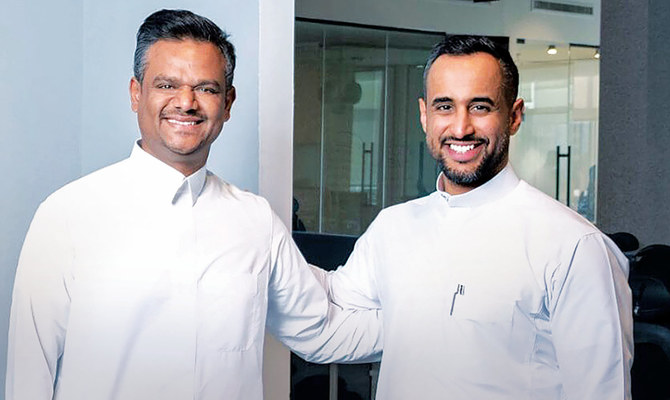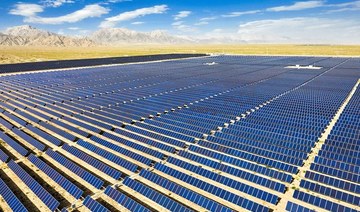CAIRO: Startups in the Middle East and North Africa region saw an uptick in venture capital investment amounts and deals during October.
Following a four-month period of decline, startup funding within the region saw a major increase, raising a total of $156 million, a significant leap from the $63 million secured in September.
This increase marks a 333 percent rise month-on-month, yet still represents a 76 percent fall compared to the same period last year, according to Wamda’s monthly report.
From January to October, the MENA region’s total funding reached $1.9 billion, witnessing a 36.6 percent decrease from the $3 billion recorded during the same timeframe in 2022.
Despite a lower year-on-year funding volume, the number of deals rose to 51 in October, up from 36 in September, thanks in part to the active accelerator scene.
The lion’s share of investments was funneled into the UAE, Saudi Arabia, and Egypt.
UAE startups topped the funding charts, with $90 million across 24 deals. Leading the pack was XPANCEO, a deeptech company specializing in smart contact lens technology, securing a $40 million seed round from Hong Kong-based Opportunity Ventures.
Saudi startups followed with $51 million raised, with HRtech firm Jisr securing $30 million in its series A round led by Merak Capital.
Egyptian startups, with Pearl Semiconductor at the helm, raised $13 million, and both countries recorded nine deals each.
Seed and pre-series A rounds dominated funding activity, comprising approximately 93 percent of the capital raised.
Seed-stage companies raised $72 million over 17 rounds, while series A startups amassed $63 million across four deals, highlighting investor confidence in early-stage ventures.
Notably, October saw no investments in growth or later-stage startups.
Deeptech emerged as the most lucrative sector, attracting $45 million across four deals, primarily influenced by XPANCEO’s funding.
Human resources tech, propelled by Jisr’s round, ranked second, while proptech and logistics also performed strongly, with respective raises of $23 million and $20 million, led by UAE’s Nomad Homes and Neo Mobility.
The month also registered a decline in fintech investments, which dropped by 56 percent to $7 million.

XPANCEO, a deeptech company specializing in smart contact lens technology, secured a $40 million seed round from Hong Kong-based Opportunity Ventures. (Supplied)
International investor participation in MENA startup deals increased, with foreign investors involved in 20 of the 51 transactions.
UAE investors were the most active regionally, engaging in 14 deals, followed by Saudi speculators with 11.
Mixed-gender founding teams secured 22 percent of the funding, with male founders claiming 75 percent, and female-led startups receiving three percent.
The month was marked by two significant acquisitions, namely, UAE-based Shipsy’s purchase of India’s Stockbone, and Saudi CashIN’s buyout of Cardless.
On the venture capital front, Saudi Venture Capital invested $10 million in Ruya Private Capital I to bolster local small and medium-sized enterprises and contributed to IMPACT46’s third fund.
Meanwhile, Tunisia’s Anava allocated $5 million to the Titan Seed Fund I, targeting Tunisian startups.
In addition, 500 Global, in collaboration with ITIDA, initiated the Scale Up program to elevate Egyptian startups.
Saudi Arabia’s Ajras raises $28m in a seed round
Ajras, a Saudi Arabian proptech startup, announced a successful $28 million seed funding round in a combination of debt and equity led by Madarek International.
Established in 2022 by Muath Al-Jubailan, Abdullah Al-Qarni, Ahmed AlTamimi, Suleiman Al-Jarbou, and Suhail Al Tamimi, Ajras aims to address cash flow management challenges faced by retail businesses.
Ajras’s service model provides flexible payment solutions for commercial rents, enabling tenants to make annual rent payments in installments.
The injection of capital will be allocated to the enhancement of Ajras’s primary service — the facilitation of streamlined payment processes for long-term commercial property leases.
This move is designed to simplify financial operations between landlords and tenants, focusing on the retail sector.
The funding initiative marks a strategic move for Ajras as it looks to consolidate its position within the real estate market by offering tailored payment options for commercial leases.
Saudi Financial Academy partners with VCPEA to boost talent in the venture capital sector
Saudi Arabia’s Financial Academy has partnered with the Saudi Venture Capital and Private Equity Association to launch a specialized training program featuring world-class trainers to foster research in the field of venture capital and private equity in the Kingdom.
This collaboration is a direct response to the Kingdom’s Financial Sector Development program, focusing on advancing the skills and competencies of financial professionals through innovative and effective training and solutions.
The program aims to address skill gaps and elevate professional standards within the sector, thereby contributing to the Kingdom’s economic development.
The CEO of the academy, Mana Al-Khamsan, emphasized that this initiative is aligned with the academy’s strategic goals to develop the financial sector’s human resources, thus enhancing the sector’s overall growth and prosperity, according to a report by the Saudi Press Agency.
RVC contributes to Flat6Labs’ Startup Seed Fund
Saudi Arabia’s Riyadh Valley Company, the venture capital division of King Saud University, has contributed an undisclosed sum to Flat6Labs’ Startup Seed Fund.
The investment by RVC aligns with its strategy to nurture early-stage startups within the Kingdom, particularly in sectors like fintech, healthtech, edtech, and tourism.
This move is part of RVC’s broader objective to cultivate a diverse investment portfolio that not only fosters innovation but also aligns with the educational and entrepreneurial objectives of King Saud University, contributing to the Kingdom’s overall economic and technological advancement.




















